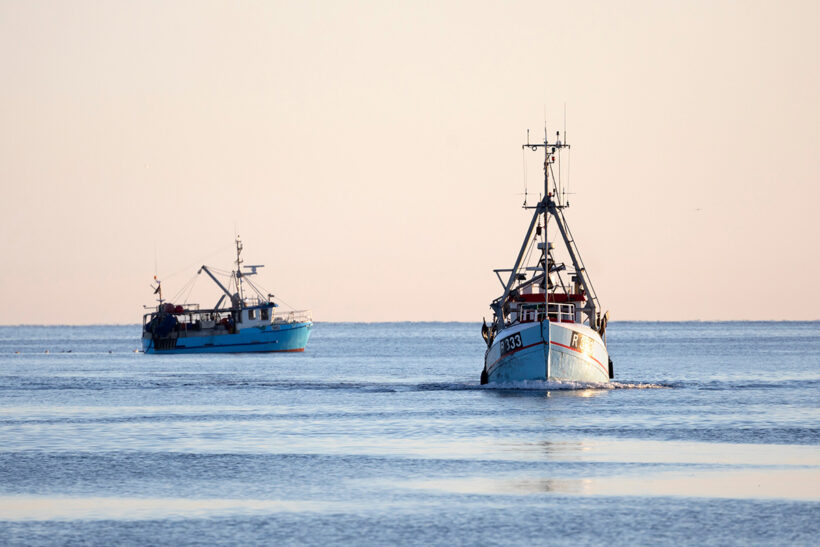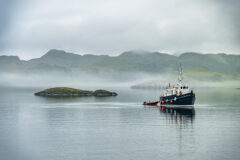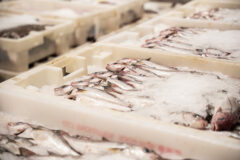Last week saw two high-level political challenges to the UK’s implementation of the Trade and Co-operation Agreement with the EU – highlighting, says the NFFO, the UK government’s failure to achieve a ‘joined-up’ fisheries policy that recognises the key role that fisheries play in the nation’s food security. Challenges have been initiated by Danish fishermen displaced by the sandeel ban, and French fishermen angered at the loss of trawl grounds in UK MPAs. NFFO chief executive Mike Cohen said that the many different rafts of decision-making in the UK – from IFCAs, to the Crown Estate, to Defrat, to devolved administrations and other government agencies – result in a failure to look at the bigger picture, with the fishing industry squeezed on all sides as a result.
The Danish challenge, which has been taken up by the EU fisheries commissioner and seems to be headed for the first arbitration process seen under the terms of the TCA, looks especially dangerous for the UK fishing industry.
Prompted by the government of Denmark, which has responded to calls from its fishing industry to take the robust line with the UK, the European Commission last week raised the stakes with the UK over its North Sea sandeel closure.
Speaking at the EU Fisheries Council in February, where he pushed hard for the Commission to take action, Danish foreign minister Lars Løkke Rasmussen told his EU counterparts that they had to ‘take a common stand to avoid a de facto erosion of fishing rights’.
The sandeel closure, announced by both the UK and Scottish governments at the end of January, flies in the face of scientific advice from ICES that a sustainable fishery is possible, without impacting breeding seabird populations – the ostensible reason for the ban. It came into effect on 26 March, a month or so before the summer sandeel fishery would be expected to start.
Analysis by Cefas and the Danish government’s equivalent DT Aqua suggests that although the closure will not prevent Danish and Swedish fishermen from taking their 2024 sandeel quotas, it will both reduce profitability of the fishery, and increase carbon footprints, as fishermen are forced onto poorer fishing grounds as a result of the UK ban.
A statement from the Commission confirmed that it had contacted the UK, and was formally launching a consultation with the UK under the dispute settlement mechanism of the Trade and Co-operation Agreement (TCA).
“This measure significantly restricts access for EU vessels to this fishery. The EU questions the compatibility of the full and permanent closure of the fishery with the principles and obligations under the TCA,” the statement said.
“Under the TCA, the EU and UK have agreed to apply evidence-based, proportionate and non-discriminatory measures for the conservation of marine living resources.
“The EU remains open to reaching a mutually agreeable solution with the UK that settles this matter.”
Danish fishermen’s leaders were much less polite in their attack on the decision, calling for the Commission to fully implement the TCA and, if necessary, reduce or remove preferential access to EU markets for British fish and seafood.
“With the Brexit agreement, Danish fishermen paid dearly for access to British waters. Now, the UK is breaking the agreement. It is beyond criticism. Therefore, this issue should be raised at the highest level, as it cannot be right for the UK to simply abandon the agreements they make with the EU, especially when there is no scientific basis,” said Svend- Erik Andersen, chairman of the Danish Fishermen’s Association.
Kenn Skau Fisher of the Danish FPO said: “There is no doubt that the UK step concerning sandeel is making the fishing less optimal, and it will undoubtedly increase the carbon footprint of the fishery. Nobody will gain from this political signal from the UK.”
EU fisheries commissioner Virginijus Sinkevičius said: “Measures are already in place to protect important species, including setting catches below the scientific advised levels and closed areas for protecting seabirds. Therefore, any further decisions must be proportionate to the objectives and based on sound scientific evidence, particularly when it comes to managing our shared resources.”
If consultations do not reach a satisfactory solution within 30 days – or more if an extension is agreed by both parties – the EU may request the establishment of an arbitration tribunal to adjudicate on the compatibility of the UK’s measures with the TCA.
A UK government spokesperson said: “We took the decision to close our North Sea waters to all sandeel fishing to protect seabirds.
This closure is fully compliant with our obligations under the EU-UK Trade and Co-operation Agreement, and applies equally to UK and non-UK vessels.”
The NFFO’s chief executive Mike Cohen said: “What a mess. We can expect to see disputes like this springing up more and more often as we approach the renegotiation of the TCA and the UK’s relationship with the EU comes into sharper focus.
“This particular situation is a consequence of the UK’s multiple parallel systems of fisheries management. We manage internationally, through negotiations and the TAC system; we are starting to manage nationally through FMPs; IFCAs manage regionally, according to various local pressures; we manage spatially through a marine planning system that always seems content to see fishing displaced; and we manage everywhere through a wide range of ‘conservation’ measures that only ever seem to be about banning fishing.
“Without a national fishing strategy that accepts fishing as food production – not a conservation problem to be removed, or a barrier to building more offshore power stations – and manages it in those terms, we will perpetuate this sort of confusion.”
By Andy Read, Editor, Fishing News
This story was taken from the latest issue of Fishing News. For more up-to-date and in-depth reports on the UK and Irish commercial fishing sector, subscribe to Fishing News here or buy the latest single issue for just £3.30 here.
Sign up to Fishing News’ FREE e-newsletter here.






